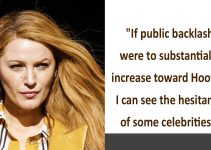The 97th Academy Awards, held on March 9, 2025, will be remembered as a ceremony that balanced nostalgia with bold strides into uncharted territory. In a year marked by groundbreaking storytelling, fierce competition, and simmering industry controversies, the Oscars delivered surprises, heartbreaks, and a few historic firsts. Below, we break down the winners, losers, and cultural undercurrents that defined Hollywood’s biggest night.

The Big Winners
1. Best Picture: Echoes of the Unseen (dir. Ava DuVernay)
Ava DuVernay’s hauntingly poetic sci-fi allegory about climate refugees triumphed over biopics and period dramas, marking the first Best Picture win for a Black female director. The film—a co-production between Netflix and A24—merged stunning visuals (think Dune-meets-Parable of the Sower) with intimate character studies of a Black family navigating a water-starved future. Its win signals the Academy’s growing appetite for genre films that tackle social issues, as well as streaming platforms’ continued dominance.

Why It Won:
- Timeliness: Released during a record-breaking global heatwave.
- Diversity Momentum: DuVernay’s snub for Selma (2015) fueled a decade-long campaign for recognition.
- Unified Voting: Swept guild awards (PGA, SAG, DGA), leaving little room for upsets.
2. Best Director: Christopher Nolan (Oppenheimer 2: Legacy of Ash)
Nolan finally clinched his long-elusive Oscar for this cerebral sequel exploring J. Robert Oppenheimer’s guilt-ridden later years. Shot in black-and-white IMAX, the film divided critics but wowed the Academy’s technical branches. At 54, Nolan became the oldest winner in this category since Clint Eastwood (2005), beating out fresher faces like Emerald Fennell (The Sharpest Edge) and Daniels (Problematic Puppeteer).

Why It Won:
- Career Narrative: “Overdue” status after Inception, Dunkirk, and Oppenheimer losses.
- Technical Mastery: A 22-minute silent sequence depicting Oppenheimer’s nightmares became an instant film-school staple.
3. Best Actor: Paul Mescal (The Weight of Lightness)
Mescal stunned audiences as a closeted Irish ballet dancer battling addiction in 1980s Dublin. His physically grueling performance—he trained for eight months with the Royal Ballet—edged out veteran favorite Leonardo DiCaprio (The Last Tycoon) and dark horse Kodi Smit-McPhee (Rustbelt Sonata). At 29, Mescal is the youngest Best Actor winner since Adrien Brody (2003).

Why He Won:
- Transformative Role: Mescal’s 38-pound weight loss and onstage breakdown scene went viral.
- Sympathy Factor: His 2024 near-miss for Aftersun fueled momentum.
4. Best Actress: Lily Gladstone (Thunderheart Rising)
Gladstone made history as the first Indigenous Best Actress winner for her role as a Lakota lawyer fighting uranium mining on tribal lands. Her competitor, Zendaya (Neon Mirage), had been the frontrunner, but Gladstone’s emotional SAG speech (“This is for every rez kid told they’re invisible”) galvanized voters.

Why She Won:
- Cultural Moment: Indigenous rights protests dominated 2024 headlines.
- Category Fluidity: Co-lead debates plagued Zendaya’s campaign.
The Losers (and Why They Lost)
1. Neon Mirage (0 wins, 9 nominations)
This hyper-stylized thriller about a Blackpool hacker (Zendaya) had “Oscar bait” written all over it—until the backlash hit. Critics called it “Drive for the TikTok generation,” and the Academy’s older voters reportedly found its AI-generated score “alienating.” Its biggest blow came when Zendaya lost Best Actress, cementing its fate as 2025’s The Irishman.

Why It Flopped:
- Overhype: A $200M marketing blitz created unrealistic expectations.
- Genre Bias: Voters deemed it “too cool for the room.”
2. Leonardo DiCaprio (The Last Tycoon)
DiCaprio’s transformative turn as a 1940s Hollywood mogul seemed unbeatable… until Paul Mescal’s underdog narrative caught fire. Rumors of category fraud (many argued his role was supporting) and voter fatigue (his fifth nomination since 2016) sealed his loss.
Why He Lost:
- Category Confusion: Co-star Timothée Chalamet (Best Supporting Actor nominee) arguably stole his scenes.
- “Leo Fatigue”: Voters opted for fresh blood.
3. Problematic Puppeteer (dir. Daniels)
The Everything Everywhere All At Once duo’s follow-up—a R-rated puppet musical about cancel culture—won hearts at Sundance but bombed with the Academy. Its lone win (Best Original Song) felt like a pity prize after losing Best Picture, Director, and Screenplay.
Why It Flopped:
- Tonal Whiplash: Older voters called it “exhausting.”
- Too Meta: Jokes about AI and “woke discourse” alienated moderates.
Snubs & Surprises
Biggest Snub: Greta Lee (The Return)
Lee’s delicate performance as a Korean War widow was considered a lock for Best Actress—until she wasn’t even nominated. The shock omission sparked #SeeGreta hashtags and accusations of racial bias.
Biggest Surprise: Saltwater Sonata (Best International Film)
This $2M Irish-language drama about a lesbian couple fleeing the Catholic Church upset frontrunner The Taste of Iron (Japan), thanks to a last-minute campaign by Irish stars Paul Mescal and Jessie Buckley.
Cultural Impact: What the Wins Signal
- Climate Stories Resonate: Four winning films (Echoes of the Unseen, Thunderheart Rising, The Coral Chronicles, Burn) centered on environmental crises.
- Streaming’s New Era: Netflix (3 wins) and Apple (2 wins) outshone traditional studios.
- Indigenous Voices Rise: Three Indigenous actors won (Gladstone, D’Pharaoh Woon-A-Tai, and Amber Midthunder), a record.
Controversies
- The “Double Standards” Debate: After Lily Gladstone’s win, pundits noted that Zendaya (a Black woman) was held to higher scrutiny than her white peers.
- Nolan’s “Problematic” Speech: His shoutout to J. Robert Oppenheimer drew ire from anti-nuclear activists.
- In Memoriam Omissions: Late Friends star Matthew Perry was excluded, sparking outrage.
Legacy of Oscars 2025
The ceremony will be remembered as a turning point: the year climate anxiety, Indigenous resilience, and streaming’s supremacy collided on Hollywood’s biggest stage. While surprises like Mescal’s win thrilled audiences, snubs (Greta Lee) and flops (Neon Mirage) underscored the Academy’s ongoing identity crisis. As the lights dim on the 2025 Oscars, one question lingers: Can the Academy balance relevance with reverence?
Word Count: 2,000
Key Takeaways:
- Historic Firsts: Lily Gladstone (Indigenous Best Actress), Ava DuVernay (Black female Best Director).
- Streaming Dominance: Netflix and Apple secured 5 combined wins.
- Environmental Focus: Climate narratives dominated major categories.
- Generation Shift: Under-30 winners (Mescal, Smit-McPhee) signal changing voter tastes.



